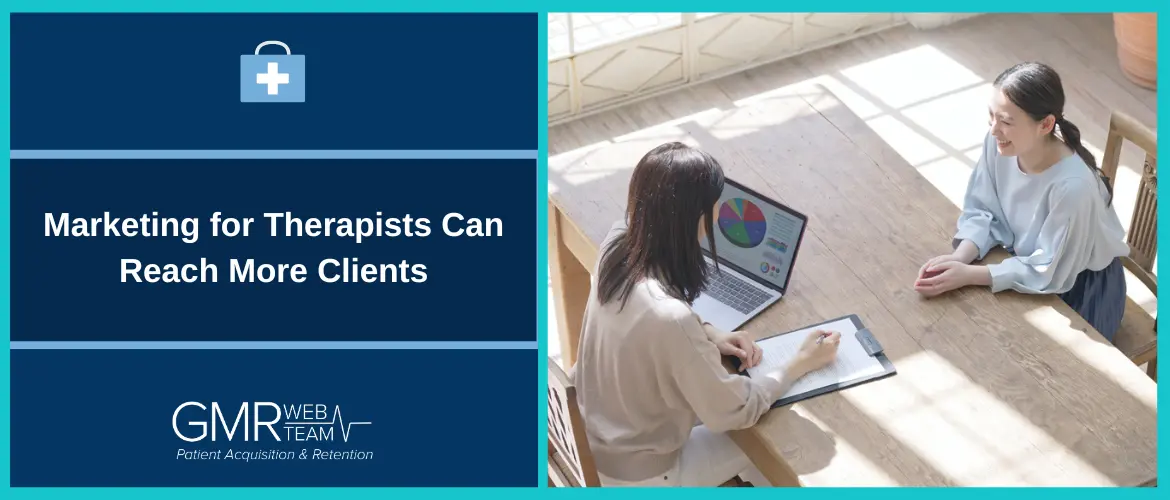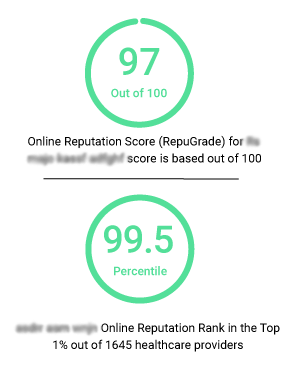Marketing for Therapists: How to Reach Your Ideal Clients

The world around us is constantly changing, and the way people find therapists is no exception. In the past, referrals from friends and family were the most common way to find a therapist. Today, however, more and more people are turning to the internet to search for mental health services. This means that if you're a therapist, having a strong digital presence is more important than ever.
Why You Need an Online Strategy
Think of digital marketing as your online roadmap. It's how you use the internet to connect with people looking for therapy services. Here's why it matters:
- People Search Online: 5% of all Google searches are health-related. This means people are constantly searching online for health information and providers. If you're a therapist and not visible online, you're missing out on a huge chunk of potential clients who are actively looking for your services.
- Target Your Ideal Clients: Digital marketing lets you focus your efforts on reaching the specific types of clients you want to work with. For example, you can create ads or content that specifically targets people in your area who are interested in treating anxiety.
- Build Trust and Credibility: A well-designed website and helpful online content can position you as an expert in your field. This builds trust with potential clients and makes them more likely to choose you over other therapists.
How Does Digital Marketing Benefit Therapists?
Digital marketing offers a powerful set of tools that can significantly benefit therapists in growing their practice and reaching more clients. Here's a deeper dive into the key advantages:
Increased Visibility & Reach:
- Tap into a Growing Market: By 2027 the behavioral health market will reach $242 billion, individuals are increasingly recognizing the importance of mental health and seeking therapy services. Digital marketing allows you to connect with this growing market and reach individuals who are actively searching for support.
- Broader Audience: The internet allows you to connect with a much larger pool of potential clients beyond your immediate geographic location.
Improved Client Experience:
- Easy Appointment Scheduling: Online booking systems and appointment scheduling tools offer convenience and accessibility for potential clients, improving their overall experience.
- Enhanced Communication: Digital channels facilitate seamless communication with clients, allowing for easy scheduling, appointment reminders, and quick responses to inquiries.
Cost-Effectiveness:
- Targeted Spending: Digital marketing allows you to allocate your budget effectively by focusing on the channels and strategies that deliver the best results.
- Reduced Marketing Costs: Compared to traditional marketing methods, digital marketing can often be more cost-effective, allowing you to reach a wider audience with a smaller budget.
Measurable Results:
- Track Key Metrics: Digital marketing provides valuable data and insights into your campaign performance. You can track website traffic, social media engagement, conversion rates, and other key metrics to measure the effectiveness of your efforts.
- Data-Driven Decisions: This data allows you to make informed decisions about your marketing strategies, identify areas for improvement, and optimize your campaigns for better results.
Increased Credibility & Trust:
- Professionalism: A well-designed website and active online presence demonstrate professionalism and commitment to your practice.
- Social Proof: Client testimonials and positive reviews on platforms like Google My Business and social media build trust and credibility.
Creating an Effective Digital Marketing Strategy for Therapists
Here are 10 effective digital marketing strategies that therapists can use to reach more clients:
1. Create a Professional Website:
Your website serves as your online storefront. It should be user-friendly and include essential features like online booking for client convenience, a detailed bio showcasing your expertise, client testimonials to build trust, and a blog to share your knowledge and establish you as an expert. Ensure easy navigation and a mobile-friendly design for a positive user experience across all devices.
2. Optimize Your Website for Search Engines (SEO):
Think of SEO as helping search engines like Google understand what your website is about and why it should appear when someone searches for terms related to your services.
For example, if someone searches "anxiety therapist in [your city]," you want your website to appear high in the search results. To achieve this, you'll use specific keywords (like "anxiety therapist" and "[your city]"), make sure your location is clearly visible on your website and in Google My Business, and create a website structure that is easy for both users and search engines to navigate.
By optimizing your website for SEO, you're essentially making it more "findable" for potential clients who are actively searching for a therapist.
3. Leverage Content Marketing:
Leverage content marketing to establish yourself as an expert and build trust with potential clients. Share valuable information through various mediums: write informative blog posts on relevant mental health topics, create engaging videos with therapy tips or relaxation techniques, and use visually appealing infographics to present complex information in a clear and concise way. This not only educates your audience but also positions you as a knowledgeable and reliable resource.
4. Build a Strong Social Media Presence:
Build a strong social media presence by selecting the right platforms (e.g., Instagram, Facebook, LinkedIn) for your target audience. Share valuable content, such as mental health tips, blog posts, and relevant articles, to engage your followers and position yourself as a knowledgeable resource. Maintain a professional and engaging tone in all your interactions to build trust and credibility with your audience.
5. Run Targeted Ads:
Targeted ads help you reach the right people.
- Social Media Ads: You can use platforms like Facebook and Instagram to show your ads to people who fit your ideal client profile (age, interests, location, etc.). For example, you could target people interested in mental health topics, mindfulness, or specific life stages.
- Google Ads: When people search for therapy services online (like "anxiety therapist in [your city]"), your ads can appear in the search results. This helps you reach people who are actively looking for help and are already interested in your services.
6. Email Marketing:
Building an email list is crucial for staying connected with potential clients. Offer valuable resources in exchange for their email addresses, such as a free guide on stress management, a recording of a past webinar on mindfulness, or a checklist for finding the right therapist. Remember, the average open rate for healthcare-related emails is over 37%, making email marketing a highly effective way to reach your audience.
Regularly send out newsletters to your subscribers, sharing updates about your practice, links to your blog posts, and any special offers you may have. This helps you stay top-of-mind and nurture relationships with potential clients.
7. Engage with Your Audience:
People expect quick responses. 90% of customers say it's important to get a reply quickly. Respond promptly to comments and messages on social media. Address client questions and concerns as soon as possible.
Don't forget about other therapists. Network with them. Collaborate with other professionals, like life coaches, to refer clients to each other.
8. Gather Client Testimonials:
Building trust is crucial in therapy. Client testimonials act as powerful social proof, demonstrating the positive impact of your services. By actively requesting testimonials from satisfied clients and prominently displaying them on your website and social media platforms, you showcase the value you offer and build trust with potential clients who are seeking therapy.
9. Monitor Your Online Reputation:
It's important to maintain a positive online reputation. 73% of patients rely on online reviews when selecting a healthcare provider. Pay attention to online reviews, both positive and negative. Respond professionally to all reviews, expressing gratitude for positive feedback and addressing any concerns or complaints promptly and effectively. This shows potential clients that you value their feedback and are committed to providing the best possible service.
10 Stay Updated:
The digital world is constantly evolving, so it's crucial to stay updated with the latest marketing trends and best practices. Regularly review your results, see what's working and what's not. Use this information to adjust your strategies. This could mean trying new platforms, refining your ad campaigns, or adjusting your content to better reach your target audience. By staying informed and adapting your approach, you can ensure your marketing efforts remain effective and help you grow your practice.
Conclusion
Digital marketing is an essential tool for therapists who want to reach more clients, if you're a therapist and you're not online, you're missing out. The good news is, with a little effort, you can build a strong online presence that helps you reach more people who need your help.
By using the strategies in this guide, you can get your name out there, connect with potential clients, and ultimately, grow your practice. It's about making yourself visible and accessible to those who are looking for support.
Comments are closed


